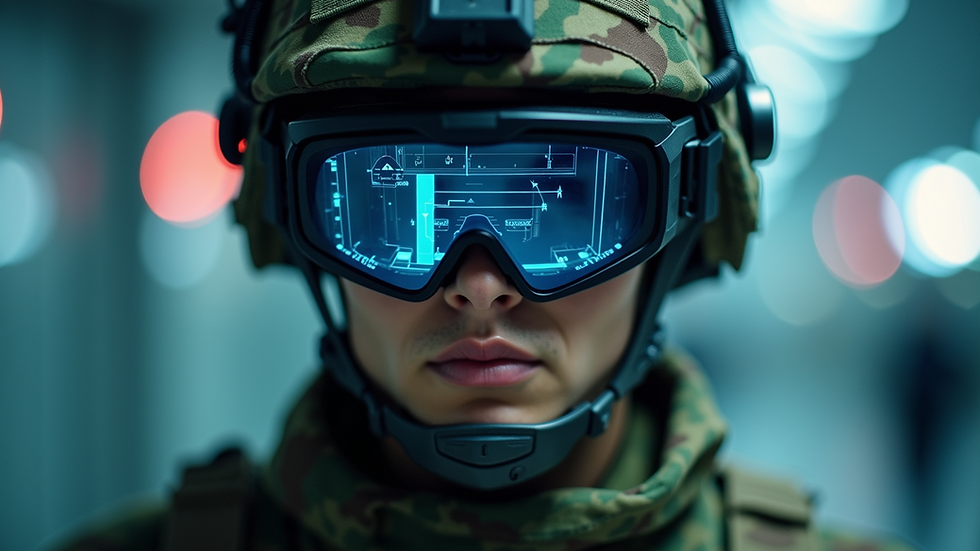Top Trends in Defense Contracting This Year
- MCDefense
- Sep 10, 2025
- 3 min read
In the ever-evolving landscape of defense contracting, staying ahead of the curve is essential. This year, several key trends are shaping the industry. From technological advancements to shifts in government policy, understanding these trends can help businesses and stakeholders navigate the complexities of defense contracting.
As we explore these trends, we will highlight their implications and provide practical insights for those involved in the defense sector.
Increased Focus on Cybersecurity
Cybersecurity has become a top priority for defense contractors. With the rise of cyber threats, companies are investing heavily in securing their systems and data.
Government agencies are also tightening regulations around cybersecurity. Contractors must comply with standards like the Cybersecurity Maturity Model Certification (CMMC). This model ensures that companies meet specific cybersecurity requirements before they can bid on contracts.
For example, the Department of Defense (DoD) has made it clear that only those who meet these standards will be eligible for future contracts. This shift emphasizes the importance of robust cybersecurity measures in the defense sector.
As a result, companies are not only enhancing their security protocols but also seeking partnerships with cybersecurity firms. This collaboration helps them stay ahead of potential threats and ensures compliance with government regulations.
Emphasis on Artificial Intelligence and Automation
Artificial intelligence (AI) and automation are transforming defense contracting. These technologies are streamlining processes and improving efficiency.
For instance, AI can analyze vast amounts of data quickly, providing insights that were previously difficult to obtain. This capability allows defense contractors to make informed decisions faster.
Moreover, automation is reducing the need for manual labor in various tasks. This shift not only cuts costs but also minimizes human error.
Companies are increasingly integrating AI and automation into their operations. This trend is expected to continue as technology advances and becomes more accessible.
Sustainability and Green Initiatives
Sustainability is becoming a significant focus in defense contracting. As environmental concerns grow, companies are looking for ways to reduce their carbon footprint.
Many defense contractors are adopting green initiatives. This includes using sustainable materials and implementing energy-efficient practices.
For example, some companies are investing in renewable energy sources for their operations. This shift not only benefits the environment but can also lead to cost savings in the long run.
Government contracts are increasingly favoring companies that demonstrate a commitment to sustainability. This trend encourages contractors to innovate and find eco-friendly solutions.
Shift Towards Small Business Engagement
The defense contracting landscape is seeing a shift towards greater engagement with small businesses. The government recognizes the value that small companies bring to the table.
Small businesses often offer innovative solutions and agility that larger firms may lack. As a result, the DoD is actively seeking to include more small businesses in its contracting processes.
Programs like the Small Business Innovation Research (SBIR) program provide funding and support for small firms to develop new technologies. This initiative encourages innovation and helps small businesses compete for defense contracts.
By fostering relationships with small businesses, the defense sector can tap into fresh ideas and solutions. This trend is likely to continue as the government seeks to diversify its contractor base.
Collaboration and Partnerships
Collaboration is becoming increasingly important in defense contracting. Companies are recognizing the benefits of working together to achieve common goals.
Partnerships can lead to shared resources, knowledge, and expertise. This collaboration is especially valuable in complex projects that require diverse skill sets.
For example, defense contractors may partner with technology firms to develop advanced systems. These partnerships can accelerate innovation and improve project outcomes.
Additionally, collaboration with government agencies can enhance communication and streamline processes. This trend highlights the importance of building strong relationships within the defense community.
Conclusion: Navigating the Future of Defense Contracting
As we look ahead, the trends in defense contracting are clear. Companies must prioritize cybersecurity, embrace AI and automation, commit to sustainability, engage with small businesses, and foster collaboration.
By understanding and adapting to these trends, defense contractors can position themselves for success in a competitive landscape.
The future of defense contracting is bright, but it requires a proactive approach. Companies that stay informed and agile will thrive in this dynamic environment.

In this rapidly changing world, the ability to adapt and innovate will be the key to success in defense contracting.



Comments